
The Divided Mind and the Quest for Meaning Part 1 > Part 2 < Part 3
The Misappropriation of Metaphor: How Trauma and Bias Can Distort Our Understanding of Reality
Main Ideas and Key Points:
- The human psyche is shaped by millions of years of evolutionary history, and the conflict between the rational, conscious mind and the deeper, instinctual layers of being is a key challenge of the human condition.
- The evolutionary development of the human brain has led to the emergence of the “reptilian” brain, responsible for instinctual drives, and the neocortex, which gives rise to the “rational” mind.
- The concepts of the “ego” and the “archetype” are relevant in understanding the conflict between the rational and emotional aspects of the psyche.
- Intuition arises when we allow ourselves to be open to the subtle cues and signals from the deeper layers of the psyche, serving as a bridge between the rational and the archetypal.
- Traumatized intuitives may distort reality through the misuse of logic and metaphor, cherry-picking ideas and examples without fully considering their context or limitations.
- Blurring the line between literal and metaphorical language can lead to a kind of “conspirituality” or “psychosis” that can lead individuals further away from reality.
- The selective and inconsistent application of logic and evidence can result in the spread of misinformation and conspiracy theories, especially when traumatized intuitives gain a following or position of influence.
- Finding a balance between the rational and the intuitive, the literal and the metaphorical, is essential for tapping into the full range of cognitive and emotional capacities without sacrificing truth and accuracy.
- The rise of social media platforms and the polarization of political and cultural discourse have accelerated the spread of misinformation and conspiracy theories in the post-truth digital age.
- Prioritizing critical thinking skills, media literacy, and addressing the underlying psychological and emotional factors that make people vulnerable to misinformation are crucial for building a more resilient and truth-oriented society.
The Evolutionary Origins of the Divided Mind: Ego, Archetype, and the Emergence of Intuition
The human psyche is a complex and multifaceted entity, shaped by millions of years of evolutionary history. As the pioneering work of thinkers like Edward Edinger has shown, one of the key challenges of the human condition is navigating the often-conflicting demands of our rational, conscious mind and our deeper, more instinctual and emotional layers of being.
To understand the origins of this inner conflict, we need to consider the evolutionary development of the human brain. Over countless generations, new neural structures have emerged and been layered on top of older, more primitive ones. At the core of our being lies what is sometimes called the “reptilian” or “lizard” brain – the most ancient part of our neural architecture, which we share with our distant evolutionary ancestors.
This reptilian brain is responsible for regulating basic physiological functions and instinctual drives, such as the fight-or-flight response, territoriality, and mating behaviors. It operates largely unconsciously, reacting to stimuli based on hard-wired patterns and associations. In this sense, it functions somewhat like the graphics processing unit (GPU) in a computer system, handling simple, repetitive tasks that need to be executed quickly and efficiently.
As humans evolved and faced new challenges, however, there was a need for more advanced cognitive abilities, such as language, abstract thinking, and long-term planning. This led to the development of the neocortex and other higher brain regions, which gave rise to the “rational” or “logical” mind. This part of the brain, which is like the central processing unit (CPU) in a computer, can handle complex computations and algorithms, allowing us to ponder abstract concepts, weigh different options, and make decisions based on analysis and reflection.
However, these two systems – the ancient, emotional brain and the modern, rational brain – are not always seamlessly integrated. They can operate independently and even come into conflict with each other, leading to inner turmoil and contradiction.
This is where the concepts of the “ego” and the “archetype” become relevant from Eddingers title. The ego represents the rational, conscious self that navigates the external world, while the archetypes are the deep, unconscious patterns and impulses that emerge from the reptilian brain and the collective evolutionary history of our species.
These archetypes manifest as powerful emotions, intuitions, and behavioral tendencies that can surge up from the depths of the psyche, sometimes overriding the rational deliberations of the ego. They are the source of our deepest desires and fears, our most intense passions and conflicts.
What is Intuition?
Interestingly, it is through engaging with these archetypal patterns that we can develop and refine our intuition – the ability to grasp truths and insights that may not be immediately apparent to the rational mind. Intuition arises when we allow ourselves to be open to the subtle cues and signals that emanate from the deeper layers of the psyche, rather than relying solely on conscious, logical analysis.
In this sense, intuition can be seen as a bridge between the rational and the archetypal, the conscious and the unconscious. When we cultivate a relationship with our intuitive faculty, we are essentially learning to listen to the wisdom of our evolutionary heritage, and to bring that wisdom into dialogue with the more recent adaptations of language and abstract thought.
Of course, this is not always an easy or straightforward process. The archetypes can be powerful and sometimes overwhelming forces, and it takes skill and discernment to navigate their currents without being swept away. But by learning to honor and integrate these different aspects of ourselves, we can tap into a greater wholeness and authenticity, and find more creative and adaptive ways of being in the world.
The Misuse of Logic and Metaphor
One common way in which traumatized intuitives may distort reality is through the misuse of logic and metaphor. In an attempt to justify their emotional responses and support their pre-existing beliefs, they may cherry-pick ideas and examples from various fields, such as psychology, philosophy, religion, and history, without fully considering the context or limitations of these sources. They might be drawn to the timeless themes found in myths and ancient religious texts, such as the hero’s journey or the battle between good and evil, and apply them to their own lives or the world around them in ways that are not entirely appropriate or accurate.
The Dangers of Blurring the Line Between Literal and Metaphorical Language
This tendency to use metaphorical language to make non-metaphorical points is a dangerous way of thinking because it allows individuals to use the wrong part of their brain for the wrong thing, mistaking subjective, emotional reasoning for objective, logical analysis. When we blur the line between literal and metaphorical language, we risk falling into a kind of “conspirituality” or “psychosis” that can lead us further away from reality and deeper into a world of our own making.
To avoid this trap, it is crucial to maintain a clear distinction between subjective experience and objective reality, as well as between literal and metaphorical language. While metaphors and symbols can be powerful tools for understanding and communicating complex ideas and emotions, they should not be confused with literal truth claims or used to justify beliefs that are not grounded in evidence and reason.
The Selective Application of Logic and Evidence
The problem with the misappropriation of metaphor is that it often involves a selective and inconsistent application of logic and evidence. Traumatized intuitives, even those who are highly intelligent and well-educated, may allow their emotional needs and biases to cloud their judgment, leading them to overlook or dismiss information that contradicts their chosen narrative. They might insist on the literal truth of certain metaphors or mythological stories while ignoring the historical or anthropological context in which they arose, or cherry-pick scientific studies and philosophical arguments that support their views while disregarding those that challenge them.
The Spread of Misinformation and Conspiracy Theories
This behavior can be especially problematic when traumatized intuitives gain a following or a position of influence, as their charisma and ability to weave compelling narratives can attract others who are searching for meaning and purpose in their own lives. In these cases, the spread of ideas that are not based on solid reasoning or empirical evidence can lead to the formation of echo chambers and the proliferation of misinformation, and in extreme cases, can even result in the formation of cults or the promotion of conspiracy theories that can have dangerous real-world consequences.
Ultimately, the goal is to find a balance between the rational and the intuitive, the literal and the metaphorical, that allows us to tap into the full range of our cognitive and emotional capacities without sacrificing our commitment to truth and accuracy. This involves learning to use metaphor and symbol in a way that illuminates and enriches our understanding of reality, rather than distorting or obscuring it.By learning to balance the rational and the intuitive, the literal and the metaphorical, and by grounding our search for meaning in a rigorous and critical approach to evidence and argumentation, we can create narratives that are both emotionally resonant and intellectually rigorous, and that help us to navigate the challenges of life with greater clarity, wisdom, and compassion.
Wittgenstein and the Misappropriation of Language Games
The work of philosopher Ludwig Wittgenstein offers valuable insights into the ways in which language can be misused to conflate objective and subjective realms of experience. In his later work, Wittgenstein introduced the concept of “language games” to describe the various ways in which language is used within specific contexts and forms of life. Each language game has its own rules, goals, and criteria for meaning and truth.
Wittgenstein argued that many philosophical problems arise from the misapplication of language games – using words and concepts from one game in the context of another, where they do not properly belong. This is precisely what happens when traumatized intuitives misappropriate objective, logical language to describe subjective, religious or spiritual experiences, or vice versa.
For example, when someone claims that their spiritual visions or revelations are “objectively true” or “logically proven,” they are misusing the language games of science and logic in the context of subjective experience. The criteria for truth and meaning in the realm of logic and empirical evidence are fundamentally different from those that apply to personal, emotional, or spiritual truths.
Conversely, when someone attempts to use the language of myth, metaphor or subjective experience to make objective claims about the nature of reality, they are equally guilty of misappropriating language games. Just as it is a category error to claim objective certainty for subjective spiritual experiences, it is also fallacious to treat mythological or metaphorical truths as literal, empirical facts.
As Edward Edinger points out, this kind of misappropriation arises when we use the wrong part of the brain for the wrong task. The rational, logical part of the mind is suited for navigating the objective world and making evidence-based claims about reality. The intuitive, emotional part of the psyche is better equipped for exploring subjective, archetypal truths and finding personal meaning and guidance.
When we use the objective mind to make subjective claims, or the intuitive mind to make objective claims, we risk falling into a kind of linguistic and conceptual confusion that can lead us away from truth and deeper into delusion and projection. The solution, as Wittgenstein suggests, is to be clear about the language games we are playing, and to use language in a way that respects the boundaries and contexts of different forms of life and experience.
By learning to use the rational mind for its proper purposes, and allowing the intuitive mind to guide us in the realms of subjective meaning and spiritual exploration, we can avoid the trap of misappropriating language and conflating distinct domains of truth. This requires a kind of intellectual humility and honesty, a willingness to acknowledge the limits of our knowledge and the contextual nature of our beliefs.
In an age of post-truth confusion and existential anxiety, this kind of clarity and discernment is more important than ever. By heeding the insights of thinkers like Wittgenstein and Edinger, and learning to use language and reason in a way that honors the diversity of human experience, we can chart a path towards a more integrated and authentic understanding of ourselves and the world we inhabit.
The Acceleration of Misinformation in the Post-Truth Digital Age
In today’s rapidly evolving digital landscape, the spread of misinformation and conspiracy theories is happening faster than ever before. The rise of social media platforms, coupled with the increasing polarization of political and cultural discourse, has created a perfect storm for the proliferation of “post-truth” narratives that prioritize emotional appeal over factual accuracy.
In this post-modern, post-truth age, the traditional gatekeepers of information, such as mainstream media outlets and academic institutions, are increasingly being challenged by alternative sources that cater to specific ideological niches. The algorithms that power social media feeds and search engines can create echo chambers where users are exposed primarily to content that reinforces their existing beliefs, rather than challenging them with new perspectives.
As a result, conspiracy theories and other forms of misinformation can spread like wildfire, gaining traction among communities of like-minded individuals who may be more susceptible to the emotional pull of these narratives. The COVID-19 pandemic has provided a stark example of this phenomenon, with countless conspiracy theories and pseudoscientific claims circulating online and influencing public opinion and behavior in ways that can have serious real-world consequences.
The Future of Truth in a Post-Truth World
As we look to the future, it is clear that the challenges posed by the post-truth digital age will only continue to grow. As artificial intelligence and other advanced technologies become more sophisticated, it may become increasingly difficult to distinguish between genuine information and cleverly crafted disinformation.
In this context, it is more important than ever to prioritize the development of critical thinking skills and media literacy, both at the individual and societal levels. Educational institutions, media organizations, and technology companies all have a role to play in promoting responsible information consumption and combating the spread of misinformation.
At the same time, we must also recognize the deeper psychological and emotional factors that make people vulnerable to conspiracy theories and other forms of misinformation. By addressing the underlying needs and fears that drive people to seek out these narratives, and by providing alternative sources of meaning and purpose that are grounded in reality and evidence-based reasoning, we can begin to build a more resilient and truth-oriented society.
Ultimately, the future of truth in the post-truth age will depend on our collective willingness to engage in honest and open dialogue, to challenge our own biases and assumptions, and to prioritize the pursuit of knowledge and understanding over the comfort of certainty and conformity. By embracing these values and working together to create a more enlightened and discerning public sphere, we can chart a course towards a future in which truth and reason can once again serve as the foundation for our shared reality.
If you liked this read the articles on other Jungian topics:
Bibliography:
- Edinger, Edward F. “Ego and Archetype: Individuation and the Religious Function of the Psyche.” Boston: Shambhala Publications, 1992.
- Kahneman, Daniel. “Thinking, Fast and Slow.” New York: Farrar, Straus and Giroux, 2011.
- Jung, Carl Gustav. “The Archetypes and the Collective Unconscious.” Princeton, NJ: Princeton University Press, 1969.
- McLuhan, Marshall. “Understanding Media: The Extensions of Man.” New York: McGraw-Hill, 1964.
- Postman, Neil. “Amusing Ourselves to Death: Public Discourse in the Age of Show Business.” New York: Penguin Books, 1985.
- Lakoff, George, and Mark Johnson. “Metaphors We Live By.” Chicago: University of Chicago Press, 1980.
- Sagan, Carl. “The Demon-Haunted World: Science as a Candle in the Dark.” New York: Random House, 1995.
- Hofstadter, Richard. “The Paranoid Style in American Politics and Other Essays.” New York: Knopf, 1965.
- Frankfurt, Harry G. “On Bullshit.” Princeton, NJ: Princeton University Press, 2005.
- Pariser, Eli. “The Filter Bubble: How the New Personalized Web Is Changing What We Read and How We Think.” New York: Penguin Press, 2011.
Further Reading:
- Campbell, Joseph. “The Hero with a Thousand Faces.” New York: Pantheon Books, 1949.
- Damasio, Antonio. “Descartes’ Error: Emotion, Reason, and the Human Brain.” New York: G.P. Putnam’s Sons, 1994.
- Festinger, Leon. “A Theory of Cognitive Dissonance.” Stanford, CA: Stanford University Press, 1957.
- Haidt, Jonathan. “The Righteous Mind: Why Good People Are Divided by Politics and Religion.” New York: Pantheon Books, 2012.
- Kahneman, Daniel, Paul Slovic, and Amos Tversky, eds. “Judgment Under Uncertainty: Heuristics and Biases.” Cambridge: Cambridge University Press, 1982.
- Levy, Neil. “Radically Socialized Knowledge and Conspiracy Theories.” Episteme 4, no. 2 (2007): 181-192.
- Mercier, Hugo, and Dan Sperber. “The Enigma of Reason.” Cambridge, MA: Harvard University Press, 2017.
- Sunstein, Cass R., and Adrian Vermeule. “Conspiracy Theories: Causes and Cures.” Journal of Political Philosophy 17, no. 2 (2009): 202-227.
- Tavris, Carol, and Elliot Aronson. “Mistakes Were Made (But Not by Me): Why We Justify Foolish Beliefs, Bad Decisions, and Hurtful Acts.” Orlando, FL: Harcourt, 2007.
- Wardle, Claire, and Hossein Derakhshan. “Information Disorder: Toward an Interdisciplinary Framework for Research and Policy Making.” Council of Europe Report DGI(2017)09, 2017.
Read More Depth Psychology Articles:
Taproot Therapy Collective Podcast
Philosophy


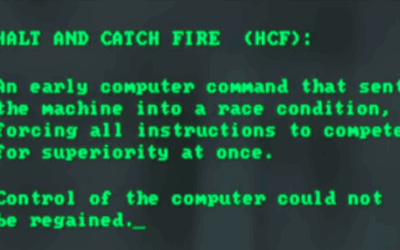








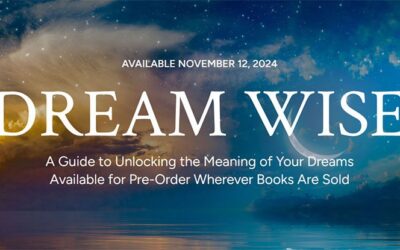
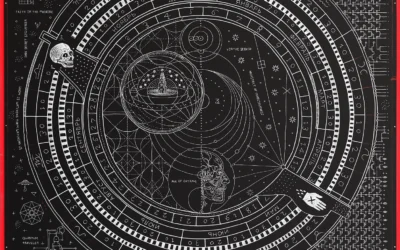







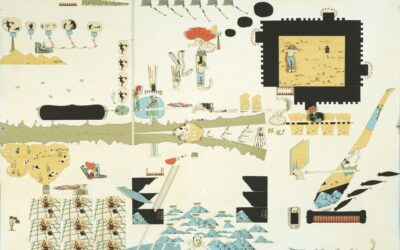


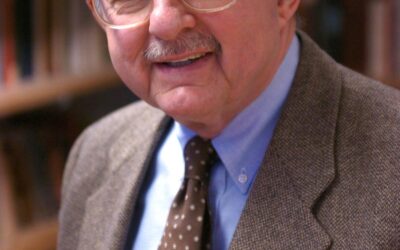
0 Comments